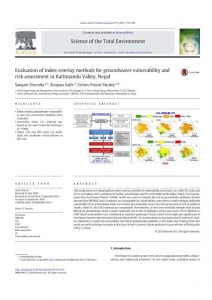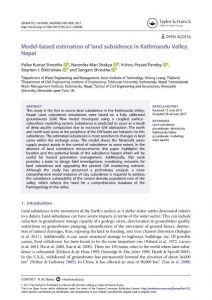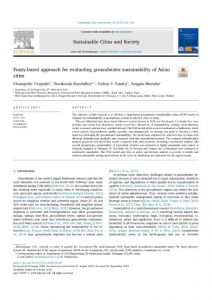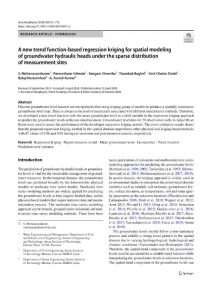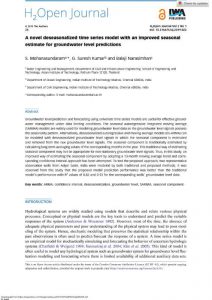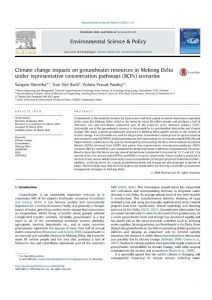
Climate change impacts on groundwater resources in Mekong Delta under representative concentration pathways (RCPs) scenarios
Ho Chi Minh City (HCMC), Vietnam has undergone tremendous transformation in land-use practices in the past few decades. The groundwater-related issues have also been a major concern in the fast-growing southern city of Vietnam. Quantitative prediction of the impact on groundwater recharge due to changes in the land-use pattern of a watershed is crucial in developing sound groundwater management schemes. This study aims to evaluate the impacts of change in land-use patterns on the quantity of groundwater recharge in HCMC. An empirical land-use projection model (Conversion of Land-use and its Effects, Dyna-CLUE) and a hydrological model (Soil and Water Assessment Tool, SWAT) was used for the study. Three future land-use scenarios of Low Urbanization Scenario (LU), Medium Urbanization Scenario (MU) and High Urbanization Scenario (HU) were developed in Dyna-CLUE focusing on the increase of built-up area to generate land use maps of HCMC until the year 2100. The land-use maps for all three scenarios were then used in the calibrated hydrological model SWAT to get the future recharge in the near future (2016–2045), mid future (2046–2075) and far future (2076–2100). The recharge was observed to increase in the far future of LU by 10% while reduction of 30% and 52%

